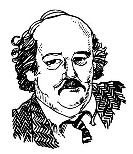(Syndicated to Kansas newspapers July 18, 2016)
 Yes, there was griping and angst last week when Secretary of State Kris Kobach, from hundreds of miles away, managed to pull at least 17,000 Kansans’ votes off state primary election—and maybe even general election—ballots.
Yes, there was griping and angst last week when Secretary of State Kris Kobach, from hundreds of miles away, managed to pull at least 17,000 Kansans’ votes off state primary election—and maybe even general election—ballots.
The issue: State law requiring proof of citizenship to vote in Kansas elections. That’s a birth certificate or passport, or something similar to make sure you are a genuine citizen if you’re going to vote for a state representative or mayor or water district board member.
Sounds logical, of course. Probably, ought to be citizens who are electing government leaders, not foreigners or even just tourists.
A major source of those questionable registrations—of folks who want to register to vote but don’t automatically pass the proof of citizenship requirement—is registering to vote by checking a box on the forms used to get new driver’s licenses. It’s called “motor voter” registration, and the idea is that when you go in to get a driver’s license, you can conveniently register to vote. A two-fer.
Well, judges have decided that proof of citizenship required by state law for voting is a dab more than is needed for just voting in federal elections. So, pretty much uniformly, judges have said, though maybe not written out in must-follow orders yet, that the motor voter registration is good enough for voting in federal elections.
Kobach, who essentially wants everyone who votes anywhere on anything to prove by birth certificate or some other document that they are genuine Americans, came up with a fix for the problem he perceived, and managed to get the Legislature to pass.
That solution: Sure, Kansas election office workers will go ahead and count those votes by drivers for federal offices. But, if you haven’t proved to the satisfaction of state law that you’re an American, well, you are just wasting your time at the bottom of the ballot. For 1st congressional district Republican voters, the U.S. Rep. Tim Huelskamp/Roger Marshall race will be worth the trip indoors. And that’s about it for high-profile primaries.
Real effect of the Kobach rule will be to cut votes in small-number elections. Those where a hundred votes might decide a primary election, and that primary win probably means a general election win.
Take four years ago, when conservative Republicans were trying to oust moderate Republicans who didn’t care for the massive tax cuts of that year. Just 160 primary votes saved a moderate who went on to win; and it was less than 500 votes that bumped then-Senate President Steven Morris, R-Hugoton, out of the Senate.
That 17,000 votes, scattered across the state, may well determine who is running the Legislature next session.
It’s called following state law by Kobach, who proposed and saw passed his proposal which is now, well, state law. Those who didn’t like that proof of citizenship hurdle call it voter suppression, and it sure was, but they didn’t have the votes to stop it, so we can just call it state law now.
It’s just law.
Practically, though, Kobach, who was represented by top-level employees in Topeka while he was helping write the party platform at the Republican National Convention in Cleveland, Ohio, last week played the game to prevent counting those don’t-have-the-citizenship-paperwork voters’ votes in August or November.
Kobach rewrote the rules and regulations for dealing with ballots cast by those who can’t prove citizenship to state standards. Well, they get handed a ballot, and they, having been forewarned that they are “provisional,” can vote for federal officers, and if they have time to spare, the rest of the state and local candidates on the ballot. Those non-federal votes just won’t be counted.
Practically, if you want to make sure that those “I’ll register if it’s easy enough” voters don’t shift state and local races, Kobach has found exactly how to accomplish that. Probably isn’t a good idea, but if that’s your goal, Kobach has done a great job getting it done.
That’s why the angst. Not counting at least 17,000 votes will change some primary election results, and everyone can analyze whether it helps moderate or conservative Republicans, or which Democrat can count on obsessive citizenship provers as their supporters.
Angst, computation, the only thing sure is that the new ballot counting rule for the state is going to change things. We’re just not sure what, and by how much…
